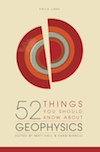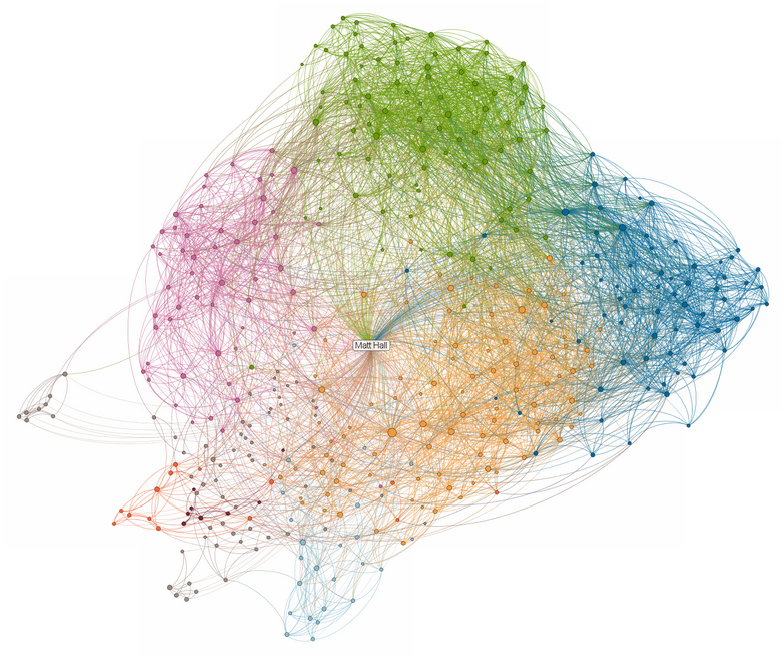Back to work
/ This post first appeared as a chapter in 52 Things You Should Know About Geophysics (Agile Libre, 2012 — also at Amazon). To follow up on Back to school on Tuesday, I thought I'd share it here on the blog. It's aimed at young professionals, but to be honest, I could do with re-reading it myself now and again...
This post first appeared as a chapter in 52 Things You Should Know About Geophysics (Agile Libre, 2012 — also at Amazon). To follow up on Back to school on Tuesday, I thought I'd share it here on the blog. It's aimed at young professionals, but to be honest, I could do with re-reading it myself now and again...
Five things I wish I'd known
For years I struggled under some misconceptions about scientific careers and professionalism. Maybe I’m not particularly enlightened, and haven't really woken up to them yet, and it's all obvious to everyone else, but just in case I am, I have, and it's not, here are five things I wish I'd known at the start of my career.
Always go the extra inch. You don't need to go the extra mile — there often isn't time and there's a risk that no one will notice anyway. An inch is almost always enough. When you do something, like work for someone or give a presentation, people only really remember two things: the best thing you did, and the last thing you did. So make sure those are awesome. It helps to do something unexpected, or something no one has seen before. It is not as hard as you'd think — read a little around the edges of your subject and you'll find something. Which brings me to...
Read, listen, and learn. Subscribe to some periodicals, preferably ones you will actually enjoy reading. You can see my favourites in J is for Journal. Go to talks and conferences, as often as you reasonably can. But, and this is critical, don't just go — take part. Write notes, ask questions, talk to presenters, discuss with others afterwards. And learn: do take courses, but choose them wisely. In my experience, most courses are not memorable or especially effective. So ask for recommendations from your colleagues, and make sure there is plenty of hands-on interaction in the course, preferably on computers or in the field. Good: Dan Hampson talking you through AVO analysis on real data. Bad: sitting in a classroom watching someone derive equations.
Write, talk, and teach. The complement to read, listen, and learn. It's never too early in your career to start — don't fall into the trap of thinking no one will be interested in what you do, or that you have nothing to share. Even new graduates have something in their experience that nobody else has. Technical conference organizers are desperate for stories from the trenches, to dilute the blue-sky research and pseudo-marketing that most conferences are saturated with. Volunteer to help with courses. Organize workshops and lunch-and-learns. Write articles for Recorder, First Break, or The Leading Edge. Be part of your science! You'll grow from the experience, and it will help you to...
 Network, inside and outside your organization. Networking is almost a dirty word to some people, but it doesn’t mean taking people to hockey games or connecting with them on LinkedIn. By far the best way to network is to help people. Help people often, for free, and for fun, and it will make you memorable and get you connected. And it's easy: at least 50 percent of the time, the person just needs a sounding board and they quickly solve their own problem. The rest of the time, chances are good that you can help, or know someone who can. Thanks to the Matthew Effect, whereby the rich get richer, your network can grow exponentially this way. And one thing is certain in this business: one day you will need your network.
Network, inside and outside your organization. Networking is almost a dirty word to some people, but it doesn’t mean taking people to hockey games or connecting with them on LinkedIn. By far the best way to network is to help people. Help people often, for free, and for fun, and it will make you memorable and get you connected. And it's easy: at least 50 percent of the time, the person just needs a sounding board and they quickly solve their own problem. The rest of the time, chances are good that you can help, or know someone who can. Thanks to the Matthew Effect, whereby the rich get richer, your network can grow exponentially this way. And one thing is certain in this business: one day you will need your network.
Learn to program. You don't need to turn yourself into a programmer, but my greatest regret of my first five years out of university is that I didn't learn to read, re-use, and write code. Read Learn to program to find out why, and how.
Do you have any advice for new geoscientists starting out in their careers? What do you wish you'd known on Day 1?








 Except where noted, this content is licensed
Except where noted, this content is licensed